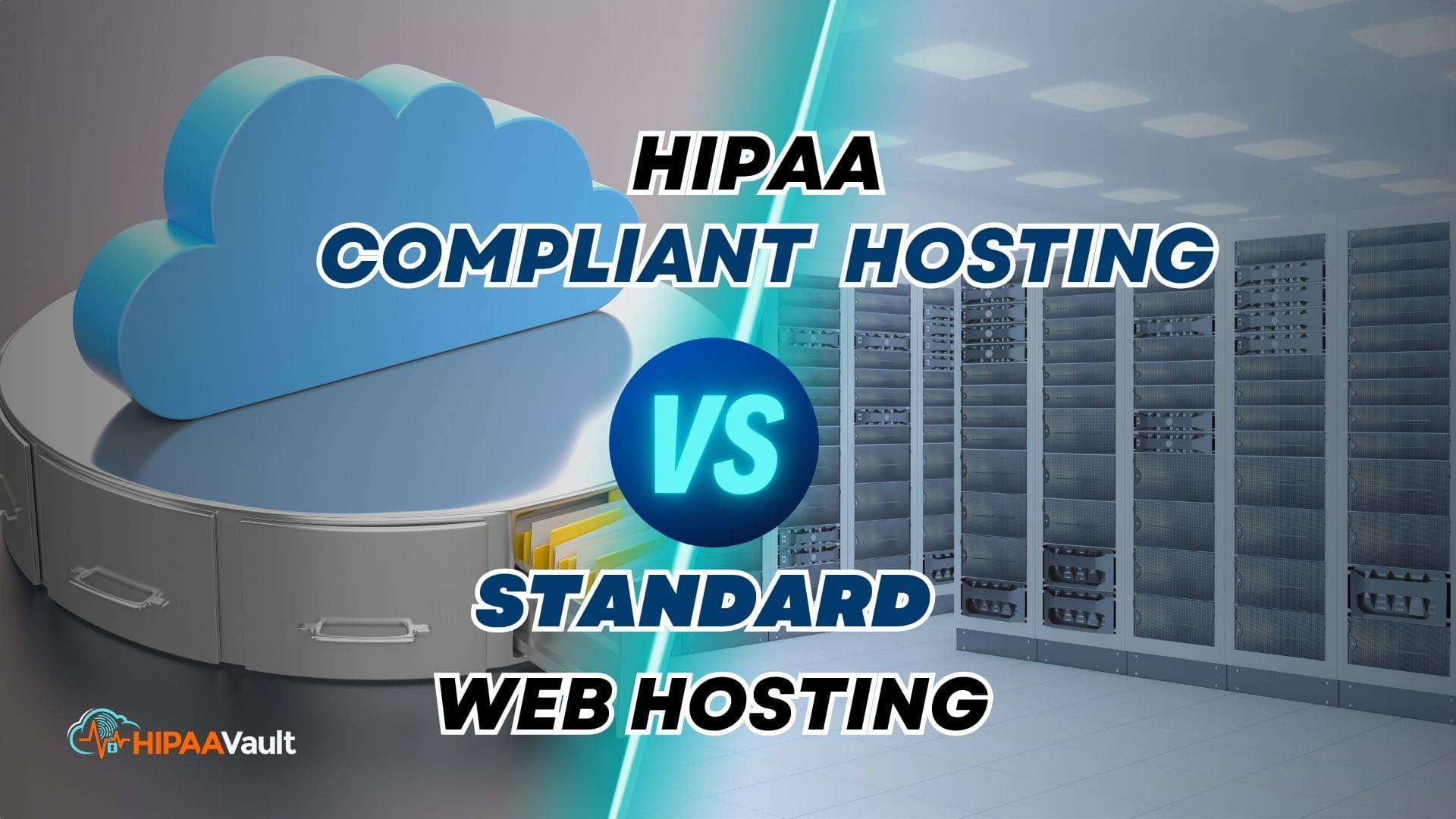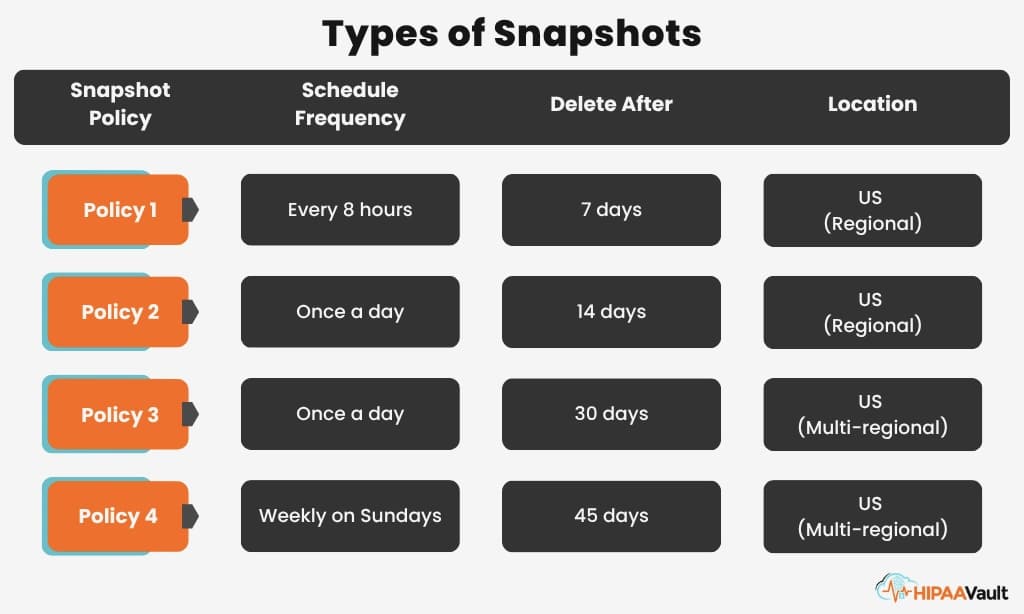If your healthcare website interacts with patient information, standard web hosting won’t cut it. You need HIPAA compliant web hosting—a secure environment designed specifically to protect Protected Health Information (PHI) and meet the strict requirements of the Health Insurance Portability and Accountability Act (HIPAA).
Since this post was first published in 2014, the risks have only grown. Ransomware attacks, phishing, and insider threats now top the list of healthcare breaches, with over 700 major breaches reported to HHS in 2024 alone. Clinics and hospitals can’t afford to rely on generic hosting providers that lack compliance expertise.
So, what exactly makes HIPAA compliant hosting different from standard hosting? Let’s break it down.
Why Standard Hosting Isn’t Enough
A typical hosting provider focuses on uptime, speed, and affordability. While that may work for blogs or e-commerce sites, it falls short when storing sensitive healthcare data. Without HIPAA safeguards in place, you risk:
- Data breaches exposing PHI.
- Regulatory fines of up to $1.5 million per year, per violation type.
- Loss of patient trust and potential lawsuits.
Standard hosting environments usually lack proper encryption, logging, and accountability. Worse, they won’t sign a Business Associate Agreement (BAA), which makes the provider legally responsible for protecting PHI alongside you.
👉 Don’t wait until a breach puts your practice at risk—explore HippaVault’s HIPAA hosting solutions and see how we safeguard patient data with proven compliance and security.
Don’t Trust Patient Data to Standard Web Hosting
Protect your practice from breaches and fines. Our hosting includes intrusion detection, firewalls, and audit logs.
Learn MoreWhat Makes HIPAA Compliant Web Hosting Different?
HIPAA hosting is built from the ground up to comply with administrative, technical, and physical safeguards defined by HIPAA. Here’s how it differs from standard hosting:
1. Business Associate Agreement (BAA)
A signed BAA ensures your hosting provider shares liability for PHI protection. Without it, you alone are responsible for breaches.
2. Security Scanning & Vulnerability Management
HIPAA hosting requires monthly vulnerability scans, intrusion detection, and prompt remediation. Providers like HIPAA Vault offer ongoing monitoring that standard hosts don’t.
3. Server Hardening & Access Controls
From disabling unnecessary services to enforcing multi-factor authentication (MFA) and role-based access, HIPAA hosts actively reduce attack surfaces.
4. Encryption & Data Protection
All PHI must be encrypted in transit (TLS 1.2 or higher) and at rest (AES-256). Many standard hosts only encrypt login data, leaving PHI vulnerable.
5. Backup & Disaster Recovery
HIPAA requires geographically separate, encrypted backups to ensure continuity during disasters. A data center “next door” isn’t enough; backups should be miles away to withstand regional outages.
6. Log Retention & Secure Decommissioning
HIPAA mandates keeping access and audit logs for six years. Retired servers must undergo multi-pass wiping or destruction—something consumer-grade hosts rarely guarantee.
HIPAA Hosting vs Standard Hosting: A Comparison
| Feature | Standard Hosting | HIPAA Compliant Hosting |
| Business Associate Agreement (BAA) | ❌ | ✅ |
| PHI Encryption | Partial/Optional | Full AES-256 + TLS 1.2+ |
| Vulnerability Scanning | Optional | Monthly + remediation |
| Backups | Local only | Encrypted, offsite, redundant |
| Log Retention | 30–90 days | 6 years |
| Compliance Liability | You only | Shared with BAA |
| 24/7 Security Monitoring | Rare | Required |
Risks of Choosing Standard Hosting
Healthcare organizations that rely on standard hosting face steep risks. Recent HHS breach reports show that improperly configured servers and cloud storage are a leading cause of large-scale PHI exposures.
Beyond regulatory fines, breaches result in:
- Expensive patient notification and remediation costs.
- Reputational damage that can drive patients elsewhere.
- Potential civil lawsuits from affected individuals.
In short, the savings from standard hosting aren’t worth the risk.
How to Choose a HIPAA Compliant Hosting Provider
When selecting a provider, ask these critical questions:
- Will you sign a Business Associate Agreement?
- Do you provide six years of audit log retention?
- Is PHI encrypted at rest and in transit?
- What’s your backup and disaster recovery policy?
- Do you offer 24/7 monitoring and intrusion detection?
- What compliance certifications (HITRUST, SOC 2) do you maintain?
For example, HIPAA Vault’s HIPAA hosting solutions are built around these exact safeguards.
Migration Guide: Moving to HIPAA Compliant Hosting
Transitioning your healthcare website to HIPAA-compliant hosting doesn’t have to be overwhelming. Here’s a simplified roadmap:
- Audit your current setup – Identify risks and gaps in compliance.
- Select a HIPAA host – Choose a provider with a strong track record.
- Encrypt & transfer data securely – Use secure channels to move PHI.
- Configure security controls – Enable MFA, access restrictions, and logging.
- Validate compliance – Ensure policies, procedures, and systems align with HIPAA.
- Train staff – Educate users on new security and compliance protocols.
With managed services, HiPAA Vault guides clients through this process with minimal downtime.
Benefits Beyond Compliance
Choosing HIPAA-compliant hosting isn’t just about avoiding penalties. It also:
- Strengthens your overall cybersecurity posture.
- Simplifies audit readiness.
- Demonstrates a commitment to patient trust and safety.
- Provides peace of mind so providers can focus on care, not compliance headaches.
FAQs about HIPAA Compliant Web Hosting
Which HIPAA compliant web hosting solutions are recommended for clinics handling sensitive patient data?
Clinics handling PHI should choose providers that specialize in HIPAA hosting, rather than relying on generic cloud or shared hosting. A true HIPAA-compliant solution offers dedicated security controls, encryption, monitoring, and a legally binding Business Associate Agreement (BAA).
For example, HIPAA Vault’s HIPAA hosting solutions are built with healthcare providers in mind. They provide 24/7 monitoring, disaster recovery, and ongoing compliance support, ensuring your environment meets HIPAA and NIST security standards. This reduces the burden on internal IT staff and ensures your patients’ data is always protected.
What features should a HIPAA compliant web host provide for healthcare practices?
A HIPAA web host must go beyond standard hosting features. At minimum, providers should deliver:
- Encryption of PHI at rest and in transit.
- Access controls with multifactor authentication.
- Vulnerability scanning and patch management.
- Offsite, encrypted backups with geographic redundancy.
- Audit log retention for at least six years.
- A signed BAA acknowledging shared responsibility.
HippaVault goes further by offering server hardening, intrusion detection, and 24/7 support, giving healthcare practices peace of mind that their infrastructure is both compliant and resilient. These features don’t just protect against fines—they help avoid operational downtime and patient trust issues.
How do standard web hosting features differ from managed hosting services?
Standard hosting providers focus on uptime, bandwidth, and storage, which works fine for small businesses or e-commerce sites. However, they typically lack the compliance framework required for PHI: BAAs, encryption, security scans, and proper log retention. This leaves healthcare organizations exposed to both data breaches and regulatory penalties.
Managed HIPAA hosting services, like those from HippaVault, add an extra layer of expertise and support. They handle proactive monitoring, remediation of vulnerabilities, compliance reporting, and disaster recovery. In practice, this means your IT team can focus on patient-facing applications while the hosting provider ensures the backend remains secure and compliant.
How do I move my healthcare website to a HIPAA compliant hosting environment?
Migrating to HIPAA hosting starts with an audit of your current environment to identify risks and compliance gaps. From there, data must be encrypted and securely transferred to a HIPAA-compliant provider. Once migrated, your hosting environment needs to be configured with security controls such as access restrictions, monitoring, and encryption.
A provider like HIPAA Vault simplifies this process by offering managed migration support. Their team ensures data is transferred securely, downtime is minimized, and all required safeguards are in place. Finally, it’s essential to validate compliance after migration and provide staff training so the organization continues to operate securely.
Conclusion: Protecting Patients and Your Practice
The difference between HIPAA hosting and standard hosting comes down to compliance, accountability, and trust. Standard hosts may be cheaper, but only HIPAA-compliant providers deliver the security and legal safeguards required to protect PHI.
👉 Take the next step in securing your practice — get in touch with HIPAA Vault.








